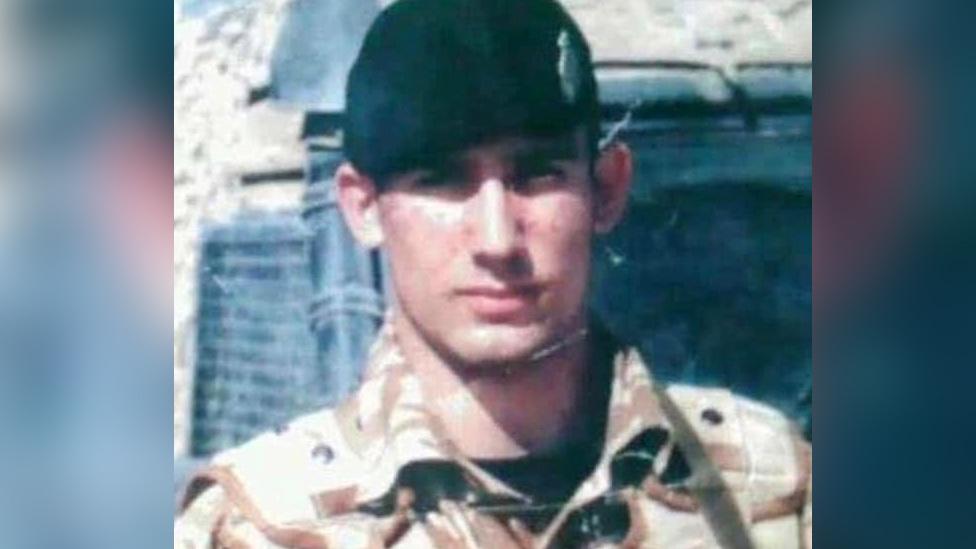Lance Shingler: Officer 'surprised' Iraq veteran was not sectioned
- Published
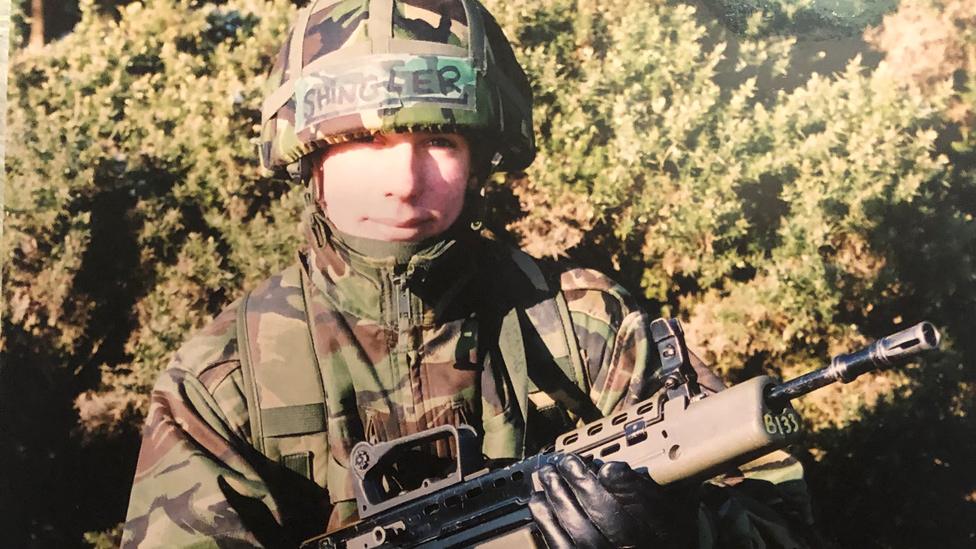
Lance Shingler served with the Army in Northern Ireland and Iraq
A police officer who supported an Iraq veteran said she was "disappointed" he was not sectioned after a distressed phone call, an inquest heard.
Lance Shingler, 34, died on 13 February 2020 after a fatal overdose.
The Solihull-based HGV driver had been suffering with his mental health which led him to sometimes "drink to excess".
Det Carly Osman had recommended he be assessed by professionals after Mr Shingler called her to say it was "all over" eight days before his death.
The former Royal Green Jackets rifleman had served in the British Army until 2007 and had been diagnosed with post-traumatic stress disorder (PTSD) "following a series or harrowing incidents in Iraq", Det Sgt Ian Comfort, from West Midlands Police, told the inquest in Birmingham.
"It appears Lance did not receive proper counselling and treatment for his condition," he said. "This had an ongoing adverse effect on his mental health."
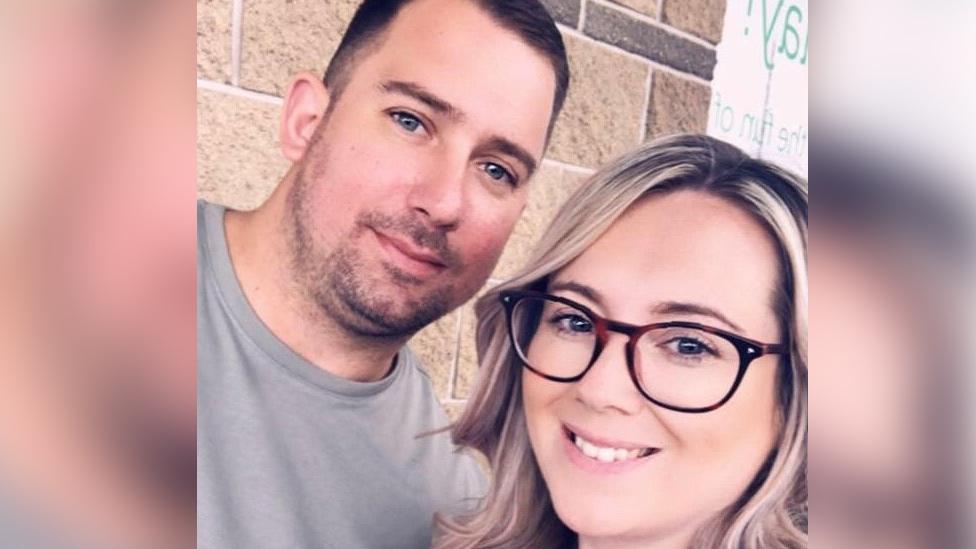
Hayley Gough described her partner Mr Shingler as "the love of my life"
On 5 February, Mr Shingler rang Det Osman and was "incredibly distressed," she said. "He was crying, he said that it was all over."
The pair had built a rapport after Mr Shingler was detained for minor offences including damaging a fence and agreed to report back to Det Osman "and tell me how he was doing" after she noticed he was suffering from PTSD.
She responded to his call that day and urged for him to be driven to a psychiatric decision unit (PDU) in Birmingham. When he arrived, mental health nurse Susan Orr recalled him "smelling of alcohol" and becoming "agitated".
Ms Orr said she was unable to complete an assessment before Mr Shingler left the PDU, saying "I won't get the support I need from here" and that the mental health treatment "did nothing".
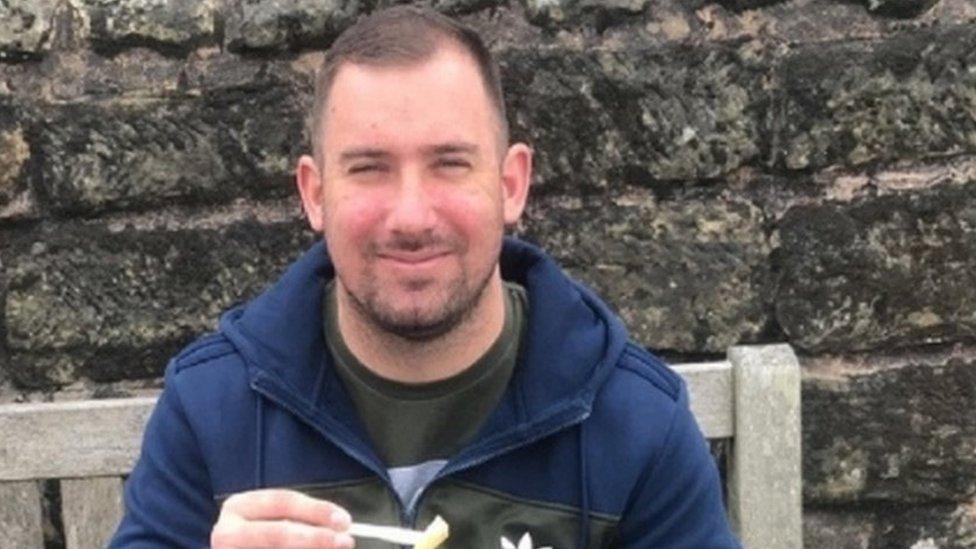
Lance Shingler called Det Osman in a distressed state saying it was "all over" before being taken for a psychiatric assessment
Det Osman said she was "surprised" when she found out he had not been sectioned "given the state he'd been in and the desire to hurt himself".
"I was disappointed and I felt he should have been - but I'm not a mental health professional," she said.
When he left the armed forces, Mr Shingler got a job as an HGV driver and raised a family with his partner, Hayley Gough, who told the hearing on Wednesday, the 34-year-old was the "love of my life" and an "amazing daddy" who she had planned to "grow old with".
In January 2020, his HGV licence was revoked due to his drinking, the inquest heard, which Det Sgt Comfort said "further affected his mental health".
Ms Orr affirmed this and told the inquest it weighed on the former soldier, she said: "Lance was talking about losing his HGV licence, which meant a considerable drop in income, on to benefits.
"He felt that he was letting his family and children down, and this was clearly some cause of stress for him."
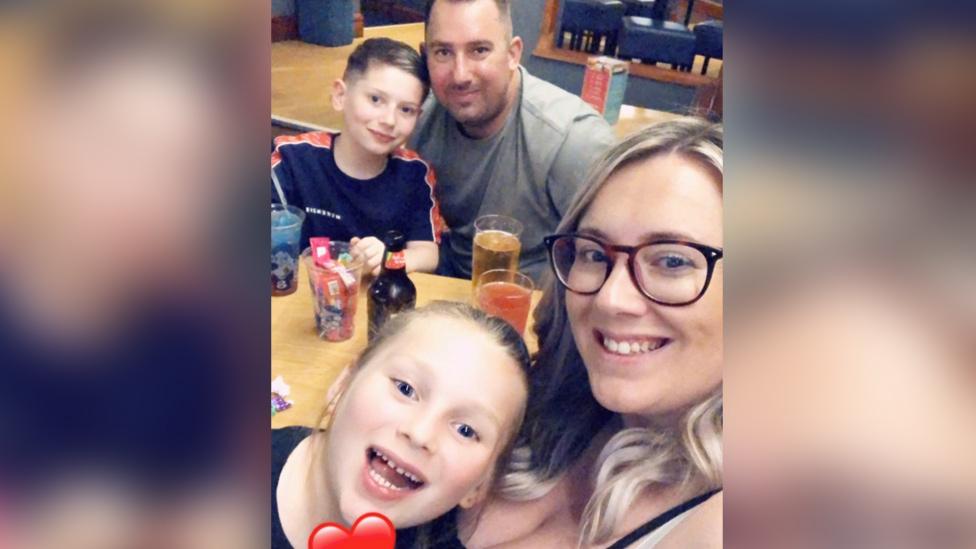
The couple have two children, Riley and Elliey-Jaye
On 11 February, the inquest heard he was drinking with a friend and "effectively carried on" until just before midnight the following day.
It was then he had an argument with an unknown male, believed to be a drug dealer, at The Kingfisher pub in Shard End which resulted in him hitting Mr Shingler in the face.
When he returned home, he told his partner he "wanted to die" and that night an ambulance was called to his home after he took a fatal overdose.
He died in hospital at 06:33 GMT on 13 February.
The inquest is due to conclude on Friday.

Follow BBC West Midlands on Facebook, external, Twitter, external and Instagram, external. Send your story ideas to: newsonline.westmidlands@bbc.co.uk, external
Related topics
- Published12 May 2021
